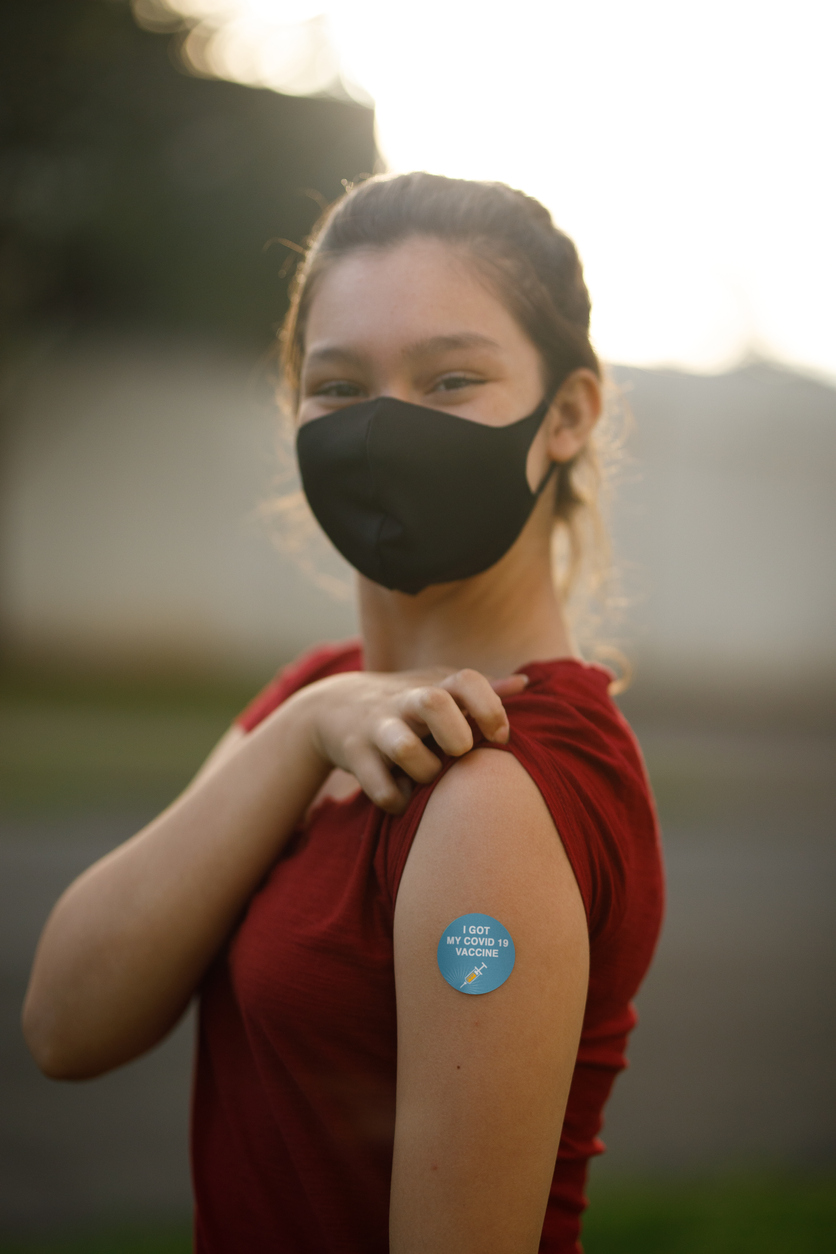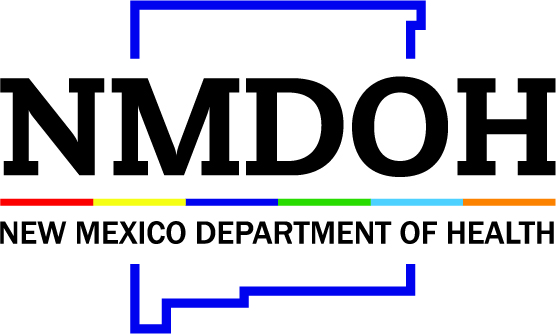
New Mexico, it's time to talk to your medical provider about your health.
Now more than ever, it’s important to stay healthy. Scheduling an appointment with your medical provider will give you the opportunity to address any symptoms or conditions that may have come up over the past year.

I'm a parent or caregiver. What should I know about vaccines for children and teens?
At this time, children and teens aged 12 and up are eligible to receive the Pfizer vaccine. Those younger than 12 years of age are not. The CDC and the American Academy of Pediatrics (AAP) recommend that everyone in this group get vaccinated as soon as they can.
Vaccines in the US are highly effective, including against the Delta variant. Given what we know about the Delta variant, and until vaccines are approved for children under age 12, experts recommend having your child wear a mask to help protect them.
How do vaccines work for kids?
The COVID-19 vaccine works similarly to other vaccines your child or teen may have had. Germs such as SARS-CoV-2, the virus that causes COVID-19, invade and multiply inside the body. The vaccine stops this by teaching the immune system to recognize and make antibodies to fight the virus. After vaccination, your child or teen has less of a chance of getting COVID-19. If they do get infected with the virus, they may not be as sick as they would without the vaccine.
What are the benefits of vaccination for children?
Getting your child or teen vaccinated will protect them from getting COVID-19. Although fewer children and teens have been infected with COVID-19 than adults, they can still catch the virus, get sick, and spread COVID-19 to others. The vaccines will help protect the people around them, like those at increased risk of severe illness from COVID-19 or those who can’t get vaccinated.
After vaccination, your child or teen has a lower chance of getting COVID-19. If they do get infected with the virus, they may not be as sick as they would without the vaccine.
Is the vaccine safe for my child?
Studies show that COVID-19 vaccines are safe and effective for children and teens age 12 and up. COVID-19 vaccination effort is being monitored more closely than any public health initiative in U.S. history. Safety studies have included adolescents, and show the vaccines are safe for this age group.
Like adults, children and teens might have some side effects after getting a COVID-19 vaccine, such as site injection pain, headache, fever and muscle ache. These side effects might affect your child or teen’s ability to do daily activities, but they should go away within a few days.
CDC and the American Academy of Pediatrics (AAP) recommend that children and teens age 12 and older get vaccinated against COVID-19. If you have questions or concerns, talk to a healthcare professional.
Are there any long term side effects on children?
Serious side effects that would cause a long-term health problem are highly unlikely following a COVID-19 vaccine.
Long-term side effects following any vaccine are extremely rare. Historically, vaccine monitoring has shown that if side effects are going to happen, they tend to happen within six weeks of a vaccine dose.
For this reason, the Food and Drug Administration made sure each of the authorized COVID-19 vaccines was studied for at least eight weeks after the final dose. Millions of people have received COVID-19 vaccines, and no long-term side effects have been detected.
Should my child still wear a mask once they're fully vaccinated?
If your child is fully vaccinated, they can start to safely resume many activities. However, with the more contagious Delta variant circulating across the United States, health experts are encouraging all people to wear a mask indoors in public if they are in an area of substantial or high transmission. This will maximize protection against the Delta variant and prevent possibly spreading it to others.
If someone in your household has a weakened immune system, is not yet vaccinated, or is at increased risk for severe disease, your child might wear a mask regardless of their vaccination status or the level of transmission in your area.
Your child should continue to wear a mask where required by laws, rules, regulations, or local guidance. CDC is continuing to update guidelines as more information becomes available, so please visit their website for the latest information.
Is the COVID-19 vaccine available for children under age 12?
There is no vaccine authorized yet for children under age 12. Vaccines are currently being tested for safety and efficacy in children aged 2 and up. The results may lead to the FDA authorizing one or more COVID-19 vaccines for younger kids in the months ahead.
There are ways to protect your unvaccinated family members, including children under the age of 12. These include getting vaccinated to help reduce the risk of spreading the virus. To maximize protection from the Delta variant, it’s recommended that everyone in a family (even those who are vaccinated) wear a mask indoors in public if you are in an area of substantial or high transmission.
Health experts also recommend that children between the ages of 2 and 12 wear a mask in public spaces around people they don’t live with.
If your family member is younger than 2 years old and cannot wear a mask, you should limit visits with people who are not vaccinated, or whose vaccination status is unknown, and keep distance between your child and other people in public.
If my child or teen has a disability, is it still recommended they get the COVID-19 vaccine?
CDC and American Academy of Pediatrics (AAP) recommend that all children over age 12 get the COVID-19 vaccine as soon as they are eligible.
As COVID-19 continues to spread, children and teens with a disability may be at increased risk for more severe illness and complications from getting COVID-19.
If my child or teen has a disability, is it still recommended they get the COVID-19 vaccine?
CDC and American Academy of Pediatrics (AAP) recommend that all children over age 12 get the COVID-19 vaccine as soon as they are eligible.
As COVID-19 continues to spread, children and teens with a disability may be at increased risk for more severe illness and complications from getting COVID-19.
The answers on this site were developed by the ad council COVID Collaborative and vetted by the CDC.

Why should I talk to my medical provider?
The importance of preventive health care involves the prevention and detection of life-threatening diseases. The earlier doctors find conditions like cancer and diabetes, the better your chances are for a good outcome. Maintaining good health typically results in lower health care costs, according to an article published by Saint Louis University. Your doctor can help ensure that you stay up to date on wellness checks and screening that pertain to your unique health history.
Preventive Care Visit
Preventive care can help you avoid potentially serious health conditions and/or obtain early diagnosis and treatment.
mental health appointment
Mental health is an important part of overall health and well-being. Mental health includes our emotional, psychological, and social well-being.
Well-Child Checkups
Making sure that your child sees their doctor for well-child visits and recommended vaccines is one of the best things you can do to protect your child and community.
prescription medicine
Medicines are used to treat diseases, manage conditions, and relieve symptoms.

Would you like to nominate a public health hero?
Throughout the pandemic, New Mexicans have given of themselves in countless ways – serving their communities with grace, compassion, and tireless dedication. If you know someone who deserves to be recognized as a public health hero, please fill out the form below.

Do you have questions about the COVID-19 Vaccine?
Millions of people in the United States and around the world have received COVID-19 vaccines. These vaccines have undergone the most intensive safety monitoring in U.S. history. If you have questions about the COVID-19 vaccine, you can talk to your doctor or call the COVID-19 at 1-855-600-3453.
